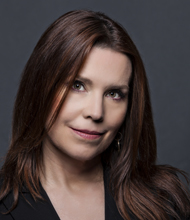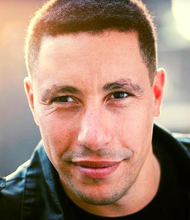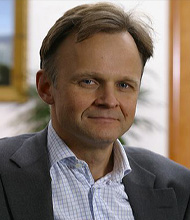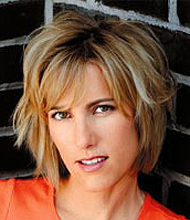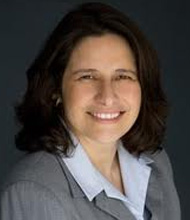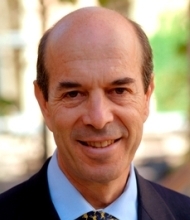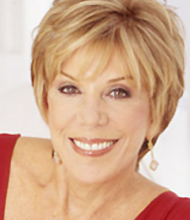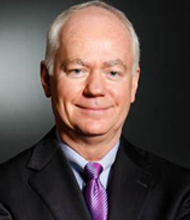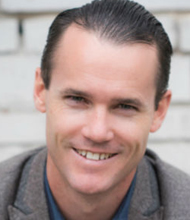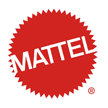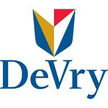| TRAVELS FROM |
|
SPEAKING FEE RANGE ** Please note that while this speaker’s specific speaking fee falls within the range posted above (for Continental U.S. based events), fees are subject to change. For current fee information or international event fees (which are generally 50-75% more than U.S based event fees), please contact us. $25,000 to $30,000 |
|
BOOK JIM KOUZES speakers@coreagency.com |
| TRAVELS FROM |
|
SPEAKING FEE RANGE* $25,000 to $30,000 |
|
Book Jim Kouzes speakers@coreagency.com |
- Coauthor of award-winning and bestselling book, The Leadership Challenge (1987), with over 2 million copies in print, available in more than 22 languages.
- Named by the Wall Street Journal as one of the 12 best executive educators in the United States.
- The Dean’s Executive Fellow of Leadership, Leavey School of Business, at Santa Clara University.
Jim Kouzes is a bestselling author, an award-winning speaker and, according to the Wall Street Journal, one of the twelve best executive educators in the United States. He is currently the Dean’s Executive Fellow of Leadership, Leavey School of Business, at Santa Clara University, and also lectures on leadership around the world to corporations, governments, and nonprofits.
Kouzes is the coauthor with Barry Posner of award-winning and bestselling book, The Leadership Challenge (1987), with over two million copies in print worldwide, available in more than twenty-two languages. The book’s fifth edition was released in 2012 marking the 25th anniversary of its publication. The Leadership Challenge has won numerous awards, including the 1995–96 Critics’ Choice Award, the 1989 James A. Hamilton Hospital Administrators’ Book of the Year Award, and was selected as one of the top ten books on leadership in Covert and Sattersten’s The 100 Best Business Books of All Time. The Leadership Challenge continues to earn accolades decades after its publication; it was an Amazon Editor’s Pick in 2007, selected by Fast Company as one of the 2012 Best Business Books of the Year, and was on the 2013 Wall Street Journal bestseller list.
In addition to The Leadership Challenge, Kouzes and Posner have co-authored over thirty other publications including award-winners The Truth About Leadership (2010), A Leader’s Legacy (2006), and Credibility: How Leaders Gain and Lose It, Why People Demand It (2003). Kouzes and Posner also developed the highly acclaimed Leadership Practices Inventory (LPI), a 360-degree leadership assessment questionnaire. It is the top-selling off-the-shelf leadership assessment instrument in the world.
Kouzes is the recipient of the Thought Leadership Award from the Instructional Systems Association, the most prestigious award given by the trade association of training and development industry providers. He was listed as one of HR Magazine’s Most Influential International Thinkers for four years in a row. In 2006, Kouzes was presented with the Golden Gavel, the highest honor awarded by Toastmasters International.
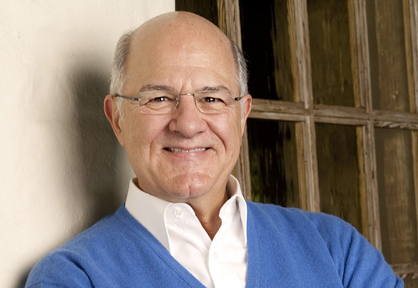 When they leave a presentation that I give, they can count on having three, four or five - depending on the length of the talk - action ideas that they can implement. When they leave a presentation that I give, they can count on having three, four or five - depending on the length of the talk - action ideas that they can implement. | |
| |
 | What do you want people to learn and take away from your presentation? |
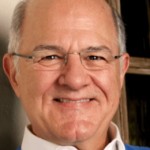 | All of my presentations are customized; but there are some common components to each of the talks that I give: they're all based on evidence. One of the things people can count on when I present is that there will be some evidence presented about why leadership is important, what impact leaders have on others, and how leaders increase the engagement and performance of those they lead.
Another common denominator in all of the talks that I give is that there'll be examples and stories, of real leaders doing real things. What is it leaders do when they're engaged in exemplary practices? Also, there will be some action tips, some prescriptions, things to try and things to do. When they leave a presentation that I give, they can count on having three, four or five - depending on the length of the talk - action ideas that they can implement. And each of those action ideas takes no budget and no approval from anyone. It's something that they can implement immediately and in their role as leaders, regardless of their position, regardless of their function, regardless of their industry. |
| I ask, “When you walk out of this presentation, what do you want to walk out with?" | |
| |
 | What kind of special prep-work do you do prior to an event? How do you prepare for your speaking engagement? |
 | Typically, it begins with a call, where I interview the person in the organization who's inviting me to come present, and often times will include multiple people; for example, if we're going to do an off-site with a senior group of executives or high potentials, I may interview three or four of the senior executives in the organization as well as the participants to get their perspective on what their needs are. I ask, “When you walk out of this presentation, what do you want to walk out with?"
I also gather data on the backgrounds of the individuals attending. I read as much as I can about the organization, its mission, its values. That way I have an understanding of the context in which I'll be presenting, and that will enable me to tailor my examples and the evidence to the context. Then based on the needs assessments, I create the presentation. I also have - and clients seem to appreciate this- - a menu of options that I call "key messages." There are about 25 key messages, and these are things that we have learned over time; they are truths about leadership that we've learned, that people can choose from, because we can't cover all of them in one session. I'll send this off to clients and say, "Take a look at this list, and let me know which of these 25 or so are most relevant to your situation right now?” That helps them and helps me to customize the presentation for the client. |
| As speakers, we have to be sensitive to the different environments in which we work, and we have to be attentive to the needs of the clients. | |
| |
 | Have you had any particularly memorable speaking engagements or unusual situations arise while on the road? |
 | Many, over all the years we've been working. Interestingly enough, most of them happen when I'm in other countries where the context is very different.
One example: I was in Saudi Arabia speaking, and I was talking to a large conference where, in an amphitheater with about 300 people, the women in a separate section. When we took a break, the women went to a separate room from the men, and that just brought home to me the difference in the culture. When I was speaking to a smaller group in a seminar room, and it came time for questions, I asked if there were questions. A question came in over the loud speaker, not from somebody in the room, and it was a woman's voice. Although I had been told ahead time that there was going to be a group of women in a separate room listening to my presentation, because women and men could not be in the same room together, I had forgotten. I thought there was just some mix up in communication, that people were talking from another room and the wires got crossed, but in fact, it was a group of women in another room asking me a question. It was just a stark reminder that we do live in different cultures around the world; we have different norms and expectations. As speakers, we have to be sensitive to the different environments in which we work, and we have to be attentive to the needs of the clients. And it was an important reminder to me, to always be sensitive, and always be attentive to the needs of our clients. |
 | What types of audiences would most benefit from your message? |
 | Because we view leadership as everyone's business, Barry Poser, my co-author, and I talk to students also. We have talked to young people in grade school. We have talked to middle school students, with high school students. We teach in college environments, undergraduate and graduate classes.
But most of our speaking engagements are in corporations and in governmental agencies. We speak to the military, non-profits, healthcare organizations, educational institutions. Our audiences usually consist of managers, particularly middle-level managers, or on occasion, senior executives, then say the frontline supervisors. But most of the people who participate in our talks are managers in organizations who want to learn more about leading others. |
 | Which of your keynote speaking topics are your favorites and why? |
 | I would say there are two that I speak more frequently about and that I love to talk about. The first of those is the "Five Practices of Exemplary Leadership." What are they? What's the evidence that they work? What are the stories that exemplify these practices? What are real leaders doing, and what can you do to become an exemplary leader yourself?
The second is what we call "The Truth About Leadership." I like to talk about those timeless truths that we've discovered over the years that are as relevant today as they were when we first started our research and that we believe will be true 10, 15 or 20 years down the road. So those are two of my favorite topics. I like to talk about encouraging the heart as well. I love to tell people the secret to success in life, which is often surprising to them, when they hear what a major general in the United States Army has to say about the secret to success in life. |
| For me, the lasting contribution I can make is to increase the sense that people can impact the lives of others in some very special ways and to give them the encouragement to continue to develop themselves as leaders. | |
| |
 | What are some of the successes you've helped clients to achieve over the year? |
 | I would say that the most valuable outcome to me is when people come up to me and they say, "You gave me encouragement to become a better leader than I am today." Although we can track organizations and record improvement at that level, for me, it's hearing that people have a belief in themselves - that they, individually, regardless of their level, regardless of their role, regardless of their function, can have an impact on other people - that they individually make a difference; that’s what matters most to me.
One of my favorite examples when I give a talk is to talk about the impact that people have on their constituents. I tell a story about being in Truckee, California, in the Sierra Mountains, where there was a sign on the side of a store in the downtown area. The sign dedicated to Ignatius Joseph Firpo reads: "What we have done for ourselves dies with us; what we have done for others remains, and is immortal." For me, the lasting contribution I can make is to increase the sense that people can impact the lives of others in some very special ways and to give them the encouragement to continue to develop themselves as leaders. |
"I would unconditionally recommend this training to any internal or external facilitator looking for world-class curriculum on leadership development."
—John S. Lybarger, MBA, Ph.D.
"The Leadership Challenge® Workshop is the best and most relevant leadership workshop I′ve ever experienced. Be prepared to be ′Wowed!′"
—Jeff Kozyra, Center for Character Development, United States Air Force Academy
"This had been an excellent growth opportunity and if implemented world-wide, would make a big positive difference."
—Michael Lloyd, Leica Geosystems
"The Leadership Challenge gives vocabulary to the innate heartbeats of leadership."
—Camille Funk, The Waterford School
"It was an outstanding few days and I firmly believe in what it can do for the team."
—Erna Grasz, Vice President of Research and Development, Tyco Health Care
"This workshop provided a way to look at meaningful leadership in a fresh and comprehensive way. I look forward to applying the concepts in my organization."
—David Troupe, Boeing
"This workshop gave me the confidence and skills to put together a first class training program."
—Joe Seaton, Allstate Insurance Company
"Thanks to The Leadership Challenge, I feel empowered to return to my organization and wake-up the ′sleeping leaders.′"
—Sgt. Steve Oliviera, Sierra Conservation Center, California Department of Corrections and Rehabilitation
Jim Kouzes treats his speaking engagements as tailored learning events. He says that though each presentation is customized, there is a “common component to each of the talks that I give: they’re all based on evidence.”
Kouzes has a selection of key messages to deliver, like “You either lead by example or you don′t lead at all,” “The best leaders are the best learners,” and “Challenge provides the opportunity for greatness.” Each message is based on research that Kouzes and Barry Posner have conducted together for over thirty years, using findings from highly revered The Leadership Challenge and other previously published materials in addition to newer research.
In a typical presentation, Kouzes can cover any combination of four to six of these key messages. Each has significant implications for practice, and Kouzes offers prescriptions, case examples, and practice applications. True to Kouzes’ engaging speaking style, each message is presented with examples, stories, and audience interaction. Listeners can expect to walk away with action ideas they can implement immediately, “in their role as leaders, regardless of their position, regardless of their function, regardless of their industry.” Leadership doesn’t have to be all business; Kouzes also likes to “encourage the heart” and impart listeners with the confidence to be an effective leader in special ways.
The following is a partial list of “key messages” that Jim Kouzes discusses in his presentations and seminars. While this is not a complete list, it represents some of the more significant issues that he has addressed. All these messages are based upon the research that Barry Posner and Jim have conducted over the last 27 years. This includes work from their previously published materials as well as some newer explorations.
To get across any of these points takes at least 10 minutes, though some require 30 minutes to an hour. In a typical speech Jim can cover around four to six of these messages. Each of the messages has significant implications for practice, and in his speeches Jim offers prescriptions, case examples, and practice applications.
Leadership is a set of skills and abilities.
Leadership is not the private
reserve of a few charismatic men and women. It’s a set of skills and abilities
learnable by anyone. Since 1983 we’ve been researching leadership,
analyzing data – both cases and surveys -- from hundreds of thousands of
individuals. From our analyses we’ve found that there are Five Practices of
Exemplary Leadership® - Model the Way, Inspire a Shared Vision,
Challenge the Process, Enable Others to Act, and Encourage the Heart.
What do leaders actually do to exhibit these practices and how can they
apply them to their daily work? How do they currently perform, and how can
they improve in each of these areas? In keynote presentations or workshop
formats, I explore The Five Practices of Exemplary Leadership.
Leadership is in the eye of the beholder.
Leadership is a relationship
between those who aspire to lead and those who choose to follow. Any
discussion of leadership must attend to the dynamics of this relationship.
The portrait of leadership is only complete when it includes the perspective
of the constituents. Strategies, tactics, skills, and practices are empty unless
we understand the fundamental human aspirations that connect leaders and
constituents. If leadership is in the eye of the beholder, then what is it that
constituents want from their leaders?
Credibility is the foundation of leadership.
We have conducted extensive
research on the qualities people look for and admire in leaders, and we have
found that people around the globe want leaders who are honest, forward-
looking, inspiring, and competent. While these results aren′t terribly
surprising, they are extraordinarily significant to leaders because three of
these four characteristics comprise what communications experts refer to as
"source credibility." Personal credibility is the foundation of leadership.
We′ve come to call this the First Law of Leadership — if you don′t believe in
the messenger you won′t believe the message. How do you earn and
sustain credibility over time?
There′s a renewed search for meaning.
While cynicism is pervasive,
people are looking for greater meaning and purpose in life and work.
Values and virtues are discussed openly, and people worry about their
personal legacy. This is reinforced in a recent survey we did in which over
half of middle managers and three-quarters of senior executives think about
the legacy they are going to leave. What is the legacy that leaders want to
leave? How can leaders clarify their own legacy? How can leaders support
both productivity and purpose at work?
Personal values drive commitment.
Credibility has at its root the word
"credo" — literally "I believe." The first step in earning and sustaining
personal credibility is the clarification of personal values. Our recent
research indicates that two-thirds of managers wish that more time were
spent talking about values at work. Our research also indicates that the
clarification of personal values precedes buy-in to organizational values.
People who are clear about organizational values but unclear about their
personal values are significantly less committed to the organization than
those individuals who are clear about their personal values but unclear about
the organization’s values. All leaders must, therefore, be crystal clear about
what they stand for and believe in. How do leaders clarify their guiding
principles? How do they help others to do the same?
Finding your voice is essential to authentic leadership.
As poet David
Whyte has written, “voice throws us back on what we want for out life. It
forces us to ask ourselves, Who is speaking? Who came to work today?
Who is working for what? What do I really care about?” It’s important to answer these questions for yourself — to find your true voice — because in
truth you can’t lead others to places you don’t want to go yourself. If you do
not find your own voice, you may find yourself with a vocabulary that belongs
to someone else, mouthing words that were written by a speechwriter who is
nothing like you at all. In the end what earns you the respect of your
constituents is whether you are you. And whether what you are embodies
what they want to become. So just who are you, anyway?
Shared values make a difference.
While values clarity is a prerequisite for
commitment, it is also important to understand that people whose personal
values are aligned with the organizations′ values are significantly more
productive and positive than those who experience little fit between personal
and organizational values. And when there is a unity of purpose, there is
also much more teamwork and team spirit. Wise leaders know that they
must build consensus not just on projects but also on principles. How do
leaders unify their constituents?
You either lead by example or you don′t lead at all.
When we asked
people to define "credibility" behaviorally, the most common response was
"They do what they say they will do." Leaders take ownership for the
success of their organization’s vision, mission, and they are willing to hold
themselves accountable for the results. Valuing is not a mental activity. It′s a
physical one. The only way people know we value something is when they
see it in action. When leaders practice what they preach they become role
models for their constituents, and leaders who are seen as exemplary role
models have higher performing units. We have found, however, that there is
a striking lack of awareness of all the ways in which one can set a positive
example for others. What are the modeling tools of leaders, and how are
they best put to use?
It takes courage to lead a life.
Anytime we do something we fear, it takes
courage. The greater the fear, the more courage required. Courage enables
us to approach our fears and not run away from them. But courage, despite
its frequent attribution to great leaders, is a poorly understood leadership
virtue. And when it is discussed it’s often associated with heroic acts under
“battlefield” conditions. In our research, however, we’ve found that when
people tell us about their “moments of courage” they speak not at all about
dramatic exploits, but instead about very personal themes of life transitions
and transformations. What is courage, then? What is required to live a
courageous life? How does courage apply to organizations? How can
leaders create conditions that support courage in others?
Learning to lead changes who you are.
When we truly learn something —
whether it’s cooking or computing, mentoring or managing, lifting or leading
— it not only changes how we do something, it changes who we are. When
we integrate leading into our daily lives — truly integrate it, not just add it to our "to do" list — we are different than before. We become leaders; we don′t
just do leadership. What is it like to be a leader in today′s world?
The legacy you leave is the life you lead.
Each day provides us with
countless opportunities to make a difference. The chance might come in a
private conversation with a direct report or in a meeting with colleagues. It
might come over the family dinner table. It might come when you’re speaking
at a conference on the future of your business, or it might come when you’re
listening to a friend talk about a current conflict with a peer. There are many
moments each day when you can choose to lead and many moments each
day when you can choose to make a difference. Each of these moments
serves up the prospect of contributing to a lasting legacy. What are your
opportunities to lead? What are the moments of leadership in your day?
Being forward-looking is essential.
While credibility is the foundation of
leadership, being "forward-looking" is also essential to earning the respect of
constituents, and it is, according to our research, the one quality that
differentiates leaders from individual contributors. The domain of leaders is
the future, and the unique legacy of leaders is the creation of valued
institutions and innovations that survive over time. What is the future you
foresee? What is the future you desire?
Challenge provides the opportunity for greatness.
Leaders go first. They
are proactive people, and taking initiative is one of the best predictors of
leadership success. When we ask people to think about leaders they admire
and look up to the names that come to mind are people who have
confronted great crises, set out on pioneering journeys, or initiated social
movements — people who have brought about or successfully responded to
major change. The same is true when we ask business executives to
describe their personal best leadership experiences. Leadership begins with
a search for opportunities to change, grow, innovate, and improve. The
essential question leaders must constantly ask themselves is: "What have
you changed lately?"
Lasting change progresses one hop at a time.
The sheer mass of
problems and the breadth of opportunities can often overwhelm people.
Rather than inspiring action, they can cause fear and confusion. And
planning doesn′t help either. How do leaders create momentum when the
challenge seems overwhelming? Through a process of small wins —
breaking the challenge into doable actions that add up to significant
achievements.
Leaders are team players. Leaders can′t do it alone.
The "Lone Ranger"
view of leadership is pure myth. When it comes to superior performance
collaboration out produces both competition and individualistic efforts. At the
heart of collaboration is trust. Without trust you cannot lead. Exemplary leaders are devoted to building relationships based on mutual respect and
caring. They see leadership as a relationship — a dialogue, not a
monologue. What is trust, and how does a leader build and sustain it?
Leadership is a service.
You can learn more about leadership by reading a
book on customer service than you can by reading most management
books. After all, leaders don′t make anything. If you had to classify
leadership according to one of the SIC codes, you′d have to call it a service.
When viewed from this perspective, leaders serve constituents; constituents
don′t serve leaders. Just what are the links between leadership and
customer or client service? What can leaders learn from studying customer
service? How do leaders act when they are behaving as providers of a
service instead of being the big boss?
You can′t do what you say unless you know how.
Competence is
essential to credibility. Before you can do something, you have to know how
to do it. This is true for both leaders and their constituents. Developing the
capacity of others is crucial to sustaining organizational credibility, because
we can′t do what we say unless we know how. Coaching skills — setting
goals and expectations, listening, giving feedback, teaching and training,
building confidence — are growing in importance as organizations rely more
and more on self-responsible people. How do leaders become more
effective coaches?
Caring is at the heart of leadership.
Contrary to a lot of public myth about
how managers have to be cold and rational — “it’s not personal, it’s just
business” — research indicates just the opposite. The highest performing
managers and leaders are the most open and caring. The best demonstrate
more affection toward others and want others to be more open with them.
Exemplary leaders excel at improving performance through more attention to
the human heart.
High hope leads to high performance.
The climb to the top of the summit
is arduous and steep. The challenges are immense and often frightening.
Against these odds leaders must sustain hope and offer encouragement.
And the research is very clear. High hope leads to high performance. How
do leaders sustain hope and encourage others to continue the quest?
Leadership development is self-development.
Leadership is an art — a
performing art — and the instrument is the self. The mastery of the art of
leadership comes from the mastery of the self. Ultimately, leadership
development is self-development. How do you your own unique talents so
that you can present yourself as any authentic leader?
The best leaders are the best learners.
In research we′ve done on
learning to lead, we have found that it doesn′t matter how someone learns to lead. A person can be an active experimenter, an observer of others,
someone who engages in emotional dialogues, or someone who loves to
read or be in the classroom. The style is not the thing. What matters is the
extent to which individuals engage in whatever style works for them. The
more people in learning the more successful they are as leaders. What truly
differentiates the best leaders from the average and good leaders is hours of
learning. You’ve got to work at becoming the best, and it sure doesn’t
happen over a weekend. It takes practice, and practice takes time. How
much time do you spend practicing leading every day? How can you build
practice opportunities into your daily routine?
Leadership is always a struggle and often a feud.
Those of us who write
and speak and train on the topic of leadership often create the impression
that it′s easy. Well, it′s much, much easier to preach than to practice.
Leadership is hard work. It requires discipline. It′s full of tensions. Leaders
must learn how to manage the tensions of their roles if they are to remain
personally healthy and energetic. How do you balance the often-conflicting
demands of the job?
Self-development requires a global view.
Honest answers to the
challenging questions perplexing leaders tell us that we must open ourselves
to a more global view. The leader, being in the forefront, should usually be
the first to encounter the world outside the boundaries of the organization.
The more we know about the world the easier it is to approach it with
assurance. Thus, we should seek to learn as much as possible about the
forces that affect the organization, be they political, economic, social, moral,
or artistic. What are those forces? How do you learn about them? What can
you do to educate others about them?
Leadership is everyone′s business.
In our workshops we often ask people
to share a story about a leader they admire and whose direction they would
willingly follow. From this exercise we hope they will discover for themselves
what it takes to have an influence on others. We have another objective as
well: we want them to discover the power that lies within each of us to make
a difference. Our research — case and survey, qualitative and quantitative
— has involved students and teachers, front-line service workers and senior
executives, public and private sector, domestic and international. The data
point only in one direction — leadership is everyone′s business. True leaders
turn constituents into leaders. The ultimate test of leadership is not how
many followers one has, but how many followers became leaders in their
own right. We believe that the appropriate percentage should be 100%. How
do you grow constituents into leaders?
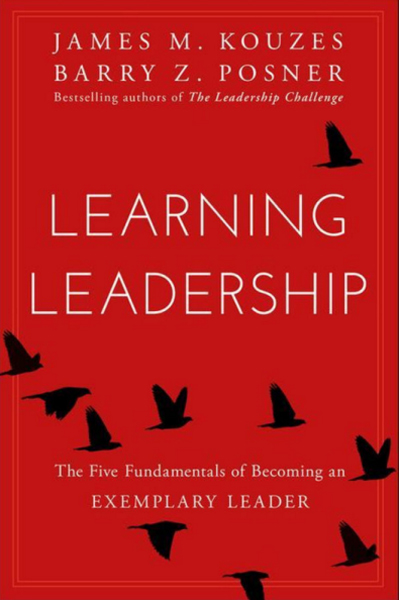
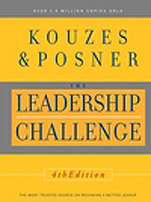 The Leadership Challenge, 4th Edition
The Leadership Challenge, 4th Edition
ISBN: 978-0-7879-8491-5
This leadership classic continues to be a bestseller after three editions and twenty years in print. It is the gold standard for research-based leadership, and the premier resource on becoming a leader. This new edition, with streamlined text, more international and business examples, and a graphic redesign, is more readable and accessible to business readers than ever before, and will prove to be the best edition yet.
Order Here
In this interview, Jim discusses:
• The Five Practices of Exemplary leadership.
• Why leaders should develop an authentic voice.
• What people look for in a leader.

 VIDEO
VIDEO TESTIMONIALS
TESTIMONIALS PROGRAMS
PROGRAMS SPEAKING
SPEAKING BOOKS
BOOKS INTERVIEW
INTERVIEW




